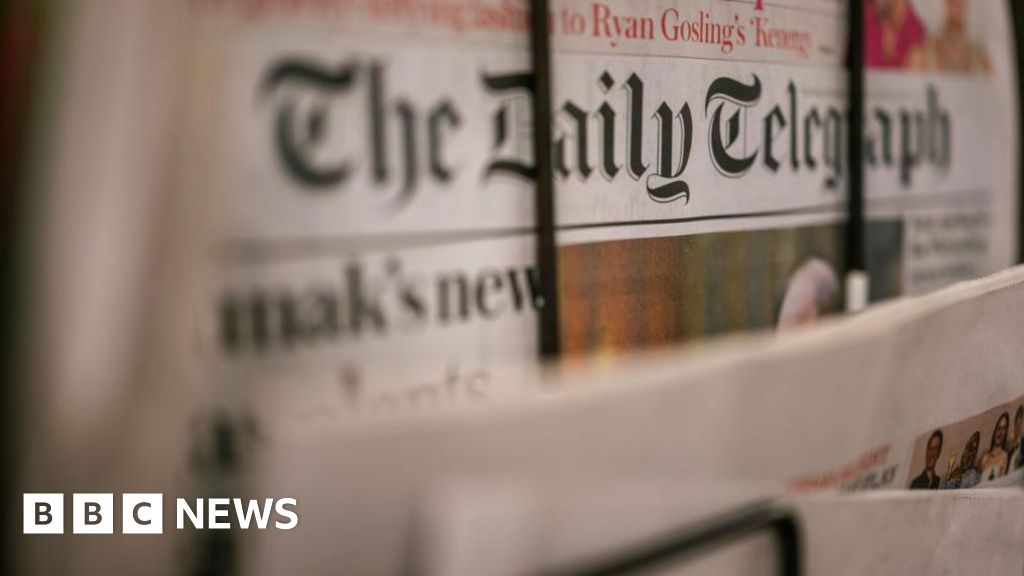ARTICLE AD BOX
By Robert Plummer
Business reporter, BBC News
Image source, Getty Images
Household gas and electricity bills are going up across Europe as the continent's energy crisis bites.
Soaring global prices of natural gas, which is used to heat homes and generate electricity, have caught governments on the hop.
In the UK, for example, a number of measures have been suggested, such as support with fuel bills for those on lower incomes.
While all countries are facing the same problem, some have acted more decisively than others.
France splashes out the subsidies
French President Emmanuel Macron has still not officially declared that he is running for a second term in April, but he clearly doesn't want discontent over energy bills to spoil his chances of re-election.
With newspapers constantly headlining the "flambée des prix de l'énergie" (soaring energy prices), the French government has stepped in to keep costs down.
Regulated gas prices went up by 12.6% in October last year and have been frozen until April. But a rise in electricity prices, planned for next month, has been limited to just 4%.
Economy Minister Bruno Le Maire said on Monday that if he had not intervened, prices would be going up by a whopping 45%.
Image source, EPA
Image caption,Bruno Le Maire has acted to curb French energy price rises
In addition, 5.8 million lower-income households received a €100 (£83) "chèque énergie" through the post last month to help them with their bills.
There's no doubt that if not for these measures, the French would have taken to the streets to express their discontent.
With the memory of the "gilets jaunes" protest movement still fresh in their minds, the last thing ministers want is to offer up a fresh pretext for social unrest.
But there has been some flak from other quarters, with Mr Le Maire accused of "killing off" the 85% state-owned electricity giant EDF.
EDF is bearing the brunt of the government's intervention, by being forced to sell more of its electricity to competitors at a lower price.
The firm says this will cost it €8bn this year. But Mr Le Maire is unrepentant, saying EDF is a public service and must act in the public interest "to protect the French".
Denmark also coughs up
Danes could also face big increases in energy bills this year, with prices going up by anywhere between 20% and 200% for many households.
But after pressure in parliament, the government has promised to intervene.
Around 440,000 struggling families will be entitled to a tax-free cheque from the government to help them cover their costs, Minister of Climate, Energy and Supply Dan Jørgensen said on Thursday.
They will include people with gas boilers and a smaller number whose homes are heated with hot water directly from power plants (known in Denmark as the "district heating" system).
"We propose that we put together a heating cheque for Danes who are hardest hit - specifically, that means people who have individual gas heating or live in district heating areas where the district heating supply relies on gas," Mr Jørgensen told Danish newspaper Jyllands-Posten.
The proposal still needs to be approved by parliament and the amount is as yet unspecified, although it's expected to be in the thousands of kroner (1,000 kroner roughly equals £112).
Only those on incomes below a certain threshold will be entitled and the cash will be paid automatically into people's bank accounts, so they won't have to apply.
Germany's bungled 'Energiewende'
France's EDF runs 56 nuclear reactors which generate just over 70% of the country's electricity. But in Germany, nuclear energy has been all but phased out.
Anyone who spent time in Germany in the 1980s will remember the "Atomkraft? Nein danke" (Nuclear power? No thanks) stickers that were omnipresent at the time.
Image source, Getty Images
Image caption,Nuclear power? No thanks, says the slogan
Anti-nuclear policy was a founding tenet of the German Green party, which is now back in the German governing coalition after 16 years in opposition.
But it wasn't the Greens that killed off nuclear power in Germany. That was the work of former Chancellor Angela Merkel, who decided after Japan's Fukushima nuclear disaster in 2011 that it was time to shut the plants down.
The change came as part of what is known as the Energiewende (energy turnaround), which has seen Germany rely heavily on renewable energy.
But whatever the rights and wrongs of that decision, it has left Germany with some of the highest power prices in Europe.
A government renewable energy surcharge accounts for one-fifth of a typical household's electricity bill. It's designed to subsidise renewable power producers, who are guaranteed a fixed price for the next 20 years, at consumers' expense.
As a result, private consumers pay more than a third of Germany's power bill, while using less than a quarter of the energy.
Image source, BBC/Robert Plummer
Image caption,Stop coal, protect the climate, says the slogan
Despite all this, German power generation is in some ways less clean than in the UK.
For example, only about 1% of the UK's electricity is still generated by coal. In Germany, it's more than a quarter.
Germany has pledged to get rid of coal by 2038. But it's hardly surprising that many of the country's former anti-nuclear protesters have switched to being anti-coal protesters instead.
As for gas, Germany relies on Russia for most of its imports - but last year, gas made up only about 15% of Germany's energy mix.
The government said it is working on "solutions for households that are now facing difficulties" because of spiralling prices, also expressing a preference for helping those on tighter budgets.
Spain's Arab gas woes
There's been much coverage of tensions between Russia and Ukraine in terms of their effect on European gas supplies.
But Spain's energy problems are being exacerbated by a different set of geopolitical issues.
More than half of Spanish gas supplies are sourced from Algeria. Until recently, the gas came via the Maghreb-Europe pipeline, which has linked the two countries since 1996.
But that pipeline also runs through Algeria's neighbour, Morocco, which is embroiled in diplomatic rows with both Madrid and Algiers.
Image source, Reuters
Image caption,Solar panels could be the way to go in Spain
Spain's relations with Morocco have worsened after a massive influx of Moroccan migrants into Spain's north African enclave of Ceuta.
At the same time, Algeria cut off diplomatic ties with Morocco after a series of disagreements.
With the Maghreb-Europe pipeline no longer in use, Algeria is now supplying Spain via the Medgaz pipeline, which does not go through Moroccan territory.
However, it has a lower capacity and could leave Spain with a shortfall. That means the country is in the market for more LNG supplies to be provided by ship.
Meanwhile, the cost of electricity has soared by more than 40% over the last year, causing many Spaniards to look at having solar panels installed on their roofs as an alternative.
The Spanish government has been forced to step in and cut several taxes to try to reduce bills. It had originally planned to keep lower rates in place until the end of 2021, but decided in December to extend the cut until May 2022.
It has also introduced a temporary windfall tax on energy companies said to have profited from soaring prices, described by its minister for ecological transition as a "shock plan".
It's aiming to collect about €2.6bn by the end of this financial year, when the six-month tax ends, redirecting those profits to consumers during months when energy usage is highest.

 3 years ago
52
3 years ago
52








 English (US) ·
English (US) ·